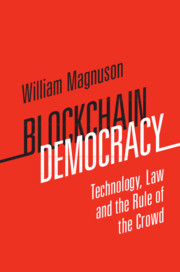To understand the Nigerian diaspora media formation, which influenced the emergence of vibrant domestic online journalism, it is important to undertake a bird’s-eye view of Nigerian media history. This is significant because there is a surprising interconnectedness, and even continuity, in the form, character, tone, tenor, and reportorial temperaments of the various epochs of Nigerian journalism history. Chris Ogbondah constructed a dichotomous periodization of Nigerian press history into “two major periods—the colonial, which is the period essentially marked by British imperialism, and the post-independence, the period that followed the dawn of independence essentially characterized by military rule.” Although this periodization has a heuristic utility, it conflates distinct temporalities in Nigerian press history and obscures many subtleties. As I show later in this chapter, the Nigerian press preceded British colonialism by many years, and postindependence Nigerian press has many discrete phases that cannot be lumped together without triggering taxonomic incongruities.
Nevertheless, irrespective of historical epochs, the Nigerian press has historically functioned as a discursive parliament for the articulation, ventilation, and circulation of transformative and politically consequential national discourses, and for the instigation of momentous social changes. That is why studies of political developments in Nigeria from the colonial to the postcolonial periods have always highlighted the roles of the Nigerian press and Nigerian journalists in energizing and galvanizing popular support for major, defining issues of the times. The Nigerian press was, for instance, the primary instrument for sustained nationalist agitation against British colonialism, a fact that inspired James Coleman to write that “there can be little doubt that nationalist newspapers and pamphlets have been among the main influences in the awakening of racial and political consciousness [in Nigeria].” Nigeria's first president, Nnamdi Azikiwe, who was himself an anticolonial activist-journalist, similarly characterized the Nigerian press as “identical with the intellectual and material developments of this country,” pointing out that the “galaxy of immortal journalists produced by Nigeria” played tremendous roles “in this corner of the world in the great crusade for human freedom.”
But before and after the dislodgement of formal colonialism, to what extent did the Nigerian press serve as a site for public sphere debates, especially in light of the rather anticlimactic emergence of a corrupt, morally bankrupt, and intolerant postcolonial Nigerian state that Terisa Turner fittingly characterizes as a “gate-keeper state”?

